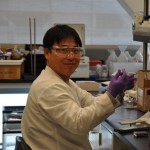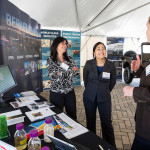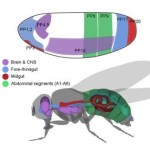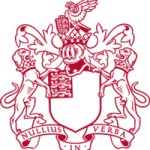 Delegates of the US-Australia City Exchange on Innovation Ecosystems, presented by the Future Cities Collaborative, an initiative of the United States Studies Centre at the University of Sydney visited JBEI on May 5. The delegates from New South Wales, Victoria and South Australia are visiting several cities in the United States to learn how to plan, finance, implement and support innovation districts in their cities. Their first stop was Emeryville. EmeryStation East, where JBEI is located, was presented as the hub of clean energy and a key space for research in in life, physical and nano sciences. Read more about the Future Cities Collaborative US tour.
Delegates of the US-Australia City Exchange on Innovation Ecosystems, presented by the Future Cities Collaborative, an initiative of the United States Studies Centre at the University of Sydney visited JBEI on May 5. The delegates from New South Wales, Victoria and South Australia are visiting several cities in the United States to learn how to plan, finance, implement and support innovation districts in their cities. Their first stop was Emeryville. EmeryStation East, where JBEI is located, was presented as the hub of clean energy and a key space for research in in life, physical and nano sciences. Read more about the Future Cities Collaborative US tour.
Mapping a Cell’s Destiny
Scientists at Berkeley Lab and UC Berkeley have developed a way to spatially map gene expression data to determine a cell’s fate. The method could go far in interrogating human tissue organization and helping elucidate key aspects of development, human health and disease. Erwin Frise and Sue Celniker of the Lab’s Environmental Genomics & Systems Biology Division were part of the team that developed this method that speeds discovery of spatial patterns in gene networks. Read more at Berkeley Lab News Center.
Biosciences Area Participates at EERE’s National Lab Impact Summit
 On May 4, 2016, EERE hosted a National Lab Impact Summit at the National Renewable Energy Laboratory to celebrate recent National Laboratory successes and bring together the nation’s public- and private-sector energy leaders to formulate the next stage of clean energy technology innovation. The full-day program included keynote presentations, break-out panels by technology, discussions with industry-leading Chief Technology Officers, interactive exhibits, networking opportunities and tours.
On May 4, 2016, EERE hosted a National Lab Impact Summit at the National Renewable Energy Laboratory to celebrate recent National Laboratory successes and bring together the nation’s public- and private-sector energy leaders to formulate the next stage of clean energy technology innovation. The full-day program included keynote presentations, break-out panels by technology, discussions with industry-leading Chief Technology Officers, interactive exhibits, networking opportunities and tours.
Doudna Named Foreign Member of UK’s Royal Society
Jennifer Doudna, biochemist faculty scientist in Molecular Biophysics & Integrated Bioimaging, has been named a foreign member of the prestigious Royal Society. Doudna, who is also a professor of molecular and cell biology and of chemistry and a Howard Hughes Medical Institute investigator, was honored for “her work on CRISPR-Cas9 gene editing technology that is revolutionizing the fields of genetics, molecular biology and medicine.” She is one of 10 new foreign fellows and 50 new fellows who will be joining many of the world’s most eminent scientists in this scientific academy, which is dedicated to promoting excellence in science. Read the Royal Society announcement.
Three MBIB Scientists Named to the National Academy of Sciences
Three scientists affiliated with the Molecular Biophysics & Integrated Bioimaging Division – Robert Glaeser, Krishna Niyogi, and Susan Marqusee – were among four Lawrence Berkeley National Laboratory (Berkeley Lab)-affiliated researchers elected as members to the National Academy of Sciences (NAS) this week. The election to the NAS recognizes their distinguished and continuing achievements in original research.
- « Previous Page
- 1
- …
- 186
- 187
- 188
- 189
- 190
- …
- 213
- Next Page »
Was this page useful?






